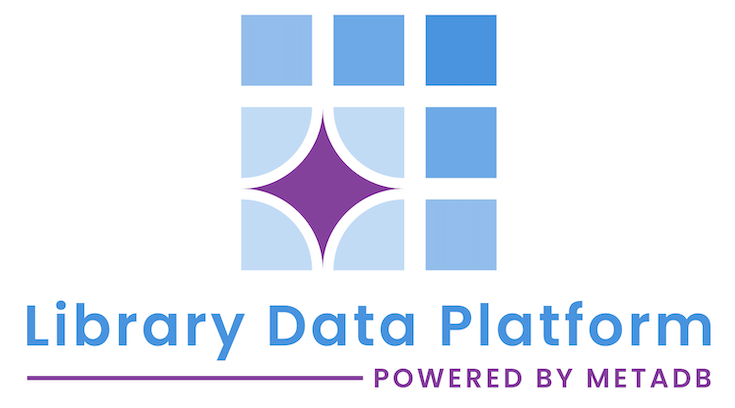The Library Data Platform (LDP) is an open source analytics platform designed specifically for libraries. The technology is powerful, but it’s the community that makes LDP truly special.
Users
Users of the Library Data Platform represent diverse institutions seeking data-driven insights from their library systems. LDP enables these users to answer complex questions about patron activities, collection usage, and operational efficiency without extensive manual data compilation. The platform’s SQL analytics capabilities and compatibility with popular visualization tools allow libraries of all types to generate meaningful reports from their integrated data. LDP’s open source nature ensures users maintain full control over their data analytics environment without vendor lock-in.
Contributors
Contributors form the backbone of the LDP ecosystem by actively participating in its development and support. These engaged community members test features, report bugs, document functionality, and create resources that benefit all users. The FOLIO Reporting Special Interest Group exemplifies this contribution model through their development of shared SQL queries that address common reporting needs. Among contributors, Committers hold a distinguished role, having demonstrated technical proficiency and commitment that warrants direct access to code repositories. Committers review code changes, maintain quality standards, and mentor newer contributors, serving as technical stewards for the project.
Governance
Governance of the Library Data Platform balances technical leadership with community representation to ensure the project’s sustainability. Index Data provides technical direction while incorporating community voices through structured roles including a Manager, Secretary, and Treasurer. The Technical Oversight Committee guides architectural decisions with representation from both Index Data and the broader community. This governance model, supported by the Open Library Foundation, provides the stability and responsiveness necessary for a community-driven open source project while maintaining clear decision-making pathways.
Funders
Funders ensure the Library Data Platform’s continued development through financial contributions that support its infrastructure and enhancement. Organizations contributing $15,000 or more annually gain governance representation through voting rights in the Treasurer election, creating formal accountability channels between financial supporters and project leadership. While Index Data serves as the primary development organization, the funding model maintains community influence over development priorities. This sustainable approach balances professional software development with library-centric responsiveness, ensuring LDP evolves according to the needs of its user community rather than external commercial interests.
Check out our current Funders!
Roadmap
Roadmap development for LDP embraces transparency and community input to determine future enhancements. While the collaborative approach ensures the platform evolves to address real library needs, resource constraints present practical challenges to implementation. Development resources are limited, and many roadmap items advance only when a group of libraries collectively funds their development. This collaborative funding model has successfully enabled important features while maintaining the project’s community-driven nature. Current and planned features are publicly documented on GitHub, allowing all stakeholders to monitor progress and suggest additions. Libraries interested in accelerating specific roadmap items are encouraged to explore cooperative funding options with other institutions that share similar priorities, as dedicated resources are essential for maintaining active development momentum.
FOLIO
The Library Data Platform serves as the de facto reporting and analytics solution for FOLIO, the open source library services platform. This integrated relationship means libraries implementing FOLIO gain a powerful, purpose-built analytics environment specifically designed for library data. The FOLIO Reporting Special Interest Group has developed numerous pre-built queries that address common reporting needs, enabling libraries to extract meaningful insights about circulation, acquisitions, cataloging, and other functional areas without requiring extensive database expertise. By transforming raw FOLIO data into actionable intelligence, LDP supports evidence-based decision making across library operations and provides the comprehensive reporting capabilities essential for effective library management.
ReShare
ReShare analytics through LDP provide unprecedented visibility into resource sharing activities. Libraries using the ReShare platform can analyze borrowing and lending patterns, fulfillment times, subject area concentrations, and partner relationships. This integration enables data-driven evaluation of interlibrary loan services and informs collection development strategies by highlighting resource gaps identified through borrowing activity. LDP’s ReShare capabilities strengthen consortial relationships by providing objective metrics for resource sharing effectiveness and reciprocity.
